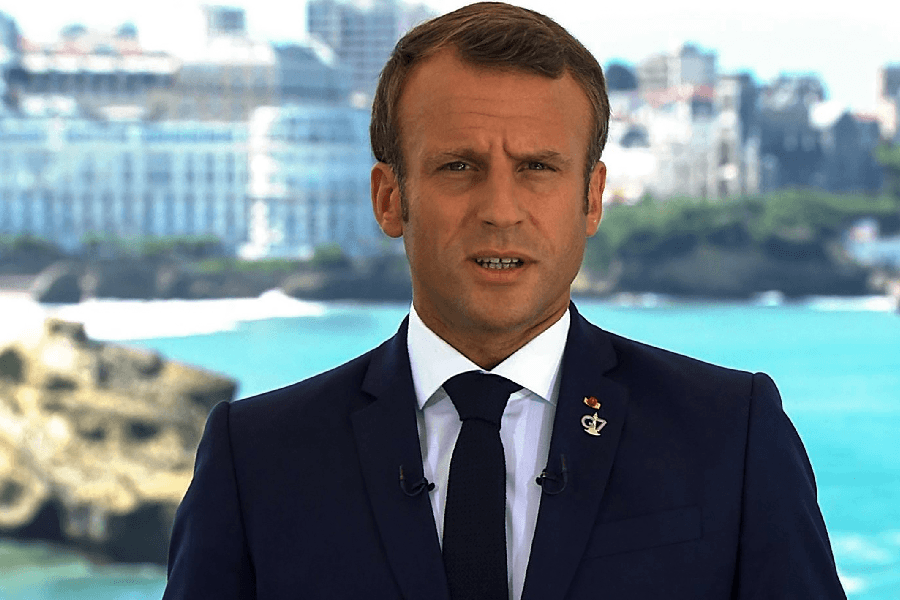The French president undertook the most ambitious nationalization process since the times of François Mitterrand, in contrast to his first campaign speeches in 2017.
The State increased its participation in energy, transport, and industry.
Since his arrival in power with a centrist and moderate message, Emmanuel Macron did not hesitate to carry out France’s most crucial nationalization process of the last 40 years.
Such a pronounced statist conviction has not been seen since the administration of former Socialist President François Mitterrand as part of his “common government program”.
The Macron administration went even further than former Socialist President François Hollande, who only temporarily increased the State’s shareholding in Groupe PSA.

The first episode of nationalization under Macron came with the appropriation of the shipyard company STX France in May 2017.
The government temporarily took over the firm to “defend France’s strategic interests.”
Then, in September 2017, an agreement was reached with the Italian company Fincantieri for the private sector to retain up to 51% of the shareholding package until 2018.
As of July of the same year, the French State acquired 84.34% of the total and renamed it “Chantiers de l’Atlantique”.
With a surface area of 150 hectares, Chantiers de l’Atlantique is emerging as one of the essential shipbuilding firms in Europe and the world.
It even has operations linked to military manufacturing and, to a lesser extent, electrical substations.
Later, in mid-2018, the government announced the majority nationalization of the multinational firm Areva, a leading company in the country’s nuclear program and a significant player in the French energy industry, heavily dependent on this type of activity.
The State completed the nationalization during the first quarter of 2021 and allocated up to €560 million to increase its shareholding to 90% to carry out complete control, leaving the private initiative in an utterly marginal place.
The French economy is increasingly characterized by intervention, regulated, and less competitive than the European Union and the rest of the world.
Macron, in economic terms, is the most statist in more than four decades.
In 2021, Economy Minister Bruno Le Maire reversed his statements denying “any possibility of new nationalizations”, and it was decided to increase the French government’s shareholding in the airline Air France-KLM to 28.6%.
The State retained up to 54.4% of the shareholding in 2003, its participation fell below 14.3% after the partial privatization of former President Jacques Chirac in 2004, but under the administration of Emmanuel Macron, the opening to the private initiative was again reduced.
The latest big bet of the ruling party was the complete nationalization of Electricité de France (EDF), the primary electricity generation company in the country, in June 2022.
EDF is one of the world’s most essential electricity companies and the leading electricity supplier in France and Western Europe.
In 2017, this company ranked second in global electricity production, behind only China Energy Investment Corporation.
Macron plans to continue with the nationalizations throughout his second term until 2027.
After his re-election last year, he came close to losing to the right-wing Marine Le Pen, whom he had ironically accused of being “statist” in the 2017 campaign.
With information from Derecha Diario

